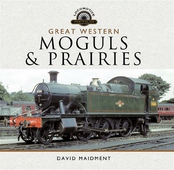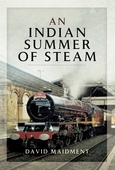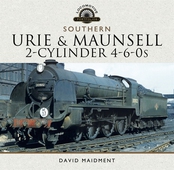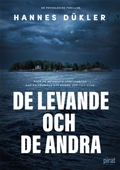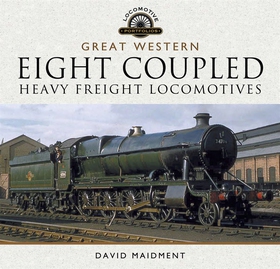
Lägg till önskelistan
The Great Western Eight Coupled Heavy Freight Locomotives e-bok
Pris
115 kr
'Great Western Eight-Coupled Heavy Freight Locomotives' is the first of a series of 'Locomotive Profiles' to be published by Pen & Sword. It will describe the conception, design, building and operation of the fleet of powerful locomotives built in the first half of the twentieth century to meet the demands of the growing South Wales coal and steel industries and the West Midlands area served by the Great Western Railway. Whilst concentrating mainly on the standard designs of the great loc...
E-Bok
115 kr
Pris
Förlag
Pen and Sword
Utgiven
17 Februari 2021
Längd
160 sidor
Genrer
Språk
English
Format
epub
Kopieringsskydd
Vattenmärkt
ISBN
9781473857315
'Great Western Eight-Coupled Heavy Freight Locomotives' is the first of a series of 'Locomotive Profiles' to be published by Pen & Sword. It will describe the conception, design, building and operation of the fleet of powerful locomotives built in the first half of the twentieth century to meet the demands of the growing South Wales coal and steel industries and the West Midlands area served by the Great Western Railway. Whilst concentrating mainly on the standard designs of the great locomotive engineer, George Jackson Churchward, the 28XX and 47XX 2-8-0 locomotives, it will also cover the 2-8-0 and 2-8-2 tank engines designed for the South Wales Valleys mining areas and coal exports through Newport, Cardiff, Barry and Swansea Docks, and other 2-8-0 locomotives acquired by the Great Western to cope with the increased industrial needs during both world wars - the RODs, Swindon built 8Fs, WDs and American S160s. It will also cover the earliest designs of the Barry and Port Talbot Railways intended to cope with the valley coal traffic. The book will be copiously illustrated with 150 black and white and 50 coloured photographs and is a comprehensive record of some outstanding freight locomotives, many of the oldest engines still operating to the end of steam on British Railways in the mid 1960s, sixty years after they were designed."

